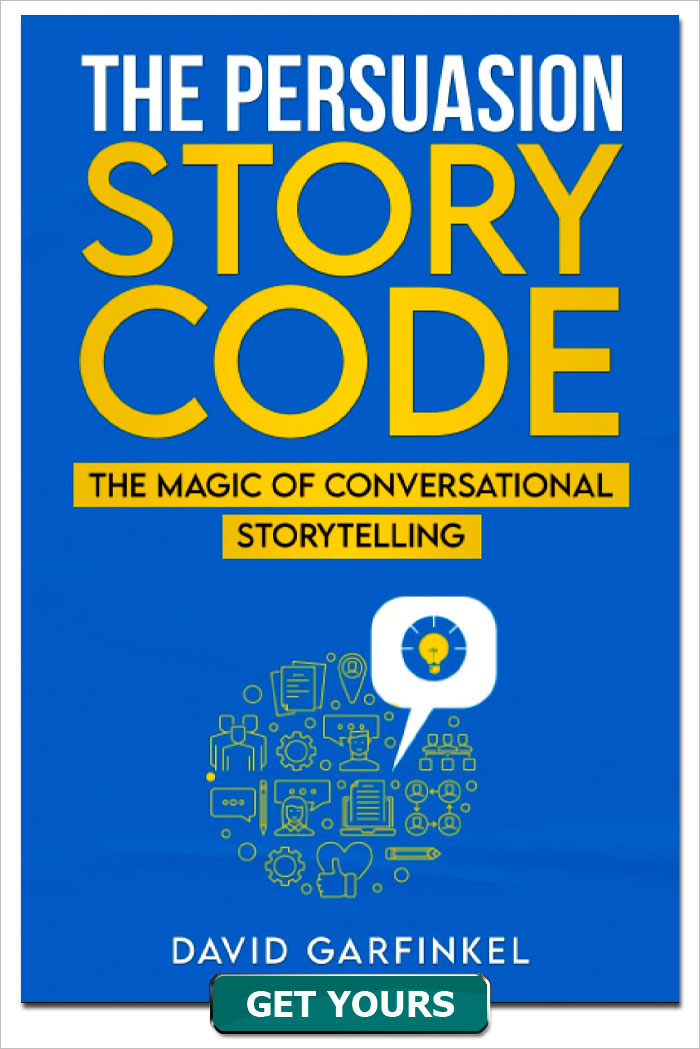Episode 027 - Improving Copywriter Confidence
Published by: David Garfinkel on 10-23-2017
Tweet
I saw a story on quora.com about Arnold Schwarzenegger. Before he became California's governor and while he was still a bodybuilder, he was walking down Venice Beach in southern California.
Two young women saw his huge muscles, and I do mean huge!, and one of them supposedly said, "Ewww… I would never want to look like that!"
He replied, "And you never willllll."
The point being, he didn't really care what other people thought about the way he looked – he was pretty confident in who he was.
Now, it's a great story and as a copywriter, you do need to worry… at least, about how prospects respond to your copy.
And always keep this in mind:
Copy is powerful. You're responsible for how you use what you hear on this podcast. Most of the time, common sense is all you need. But if you make extreme claims… and/or if you're writing copy for offers in highly regulated industries like health, finance, and business opportunity… you may want to get a legal review after you write and before you start using your copy. My larger clients do this all the time.
Now, let's talk about confidence, and then we'll talk about how to build and keep a high level of confidence as a copywriter.
There are some people who think you can say magic words over and over and that will make you confident. It's a very seductive theory, but it's simply not true.
Then there are more sophisticated theories about deliberately rewiring your brain to increase your confidence. I don't know how that works, but I've never seen that work for copywriters.
I'm not against these things. I'm only against depending on them by themselves. I know some of the most successful copywriters used techniques to build on the foundation of ability, skill and copywriting experience that gave them confidence in the first place.
And I want to stick to the foundational stuff in today's episode.
To start with, big difference between
- confidence in self and ability to get the job done, and get results, and
- confidence in a particular piece of copy you're writing or you've just written
Self: This is what you want to establish, fortify, increase. We'll talk about how in depth in a few minutes.
A particular piece of copy: Some anxiety is the price you pay to do this work.
Reasons:
- You never know for sure how well it will work until you test it
- The creative process includes anxiety. Universally. All writers. Musicians. Comedians. Public speakers. Artists. Many other types of performers.
> Aaron Sorkin quote abt screenwriting (paraphrasing): Very productive sessions followed by long periods of depression. (He was clearly only half-kidding, if kidding at all)
- This is not necessarily something to "cure" – it's something to learn to live with. Here's why:
o Edge of Chaos – you're going where no one's ever been before
o Creativity, by its very nature, takes you from the familiar to the unfamiliar. If it's totally familiar, it's the same old shit, and it may not work very well. If it's unfamiliar, it might be uncomfortable.
- When you get into that flow state, it's an adventure.
- Two pieces of advice, which I've used successfully myself:
o Surrender to the weird feelings. That helps them move through you and move on. Fighting them locks 'em in.
o Attributed to Fritz Perls, founder of Gestalt Therapy: "Fear is excitement without breathing."
You don't need to be a nervous wreck. Everyone has their own way of handling it. I'm going through all of this in detail to point out that you can still be baseline confident and solid, and if you're freaking out about a particular project you're working on – that's to be expected sometimes. Don't confuse that with lack of confidence. They're two different things.
Now that we have "The Creativity Dance" covered, let's talk about baseline confidence.
Four key steps most people are too scared to take:
1. Failure
2. Resiliance
3. Reflection and analysis
4. Adjustment
And start over.
Most people think confidence comes from success. And there's some truth to that. But if you take a person who has only had success and put him in a situation where he fails, he's not going to handle it very well. Deep down such a person knows that. And that's why that person is not really as baseline confident as the person who's had his share of success, but also weathered his share of storms.
That's confidence.
The other key ingredient to baseline confidence is learning. Not just learning through doing, but learning through studying. Reading the copywriting books. Taking seminars. Studying what other people are doing with their copy. Really building a practical knowledge base about copywriting.
Hey, even listening to the Copywriters Podcast.
ESPECIALLY listening to the Copywriters Podcast.
Hey, let me tell you about scaling the heights, in a way you've probably never thought of before.
This will help you grasp what I'm saying about baseline confidence, compared to temporary uncomfortable feelings on a project.
Have you ever been on the top of a skyscraper under construction?
I have. Many years ago. The early 1980s. I was a reporter for a construction magazine. The contractor invited me up to the top of this building on North Michigan Avenue in Chicago. I'm not sure why. Part of the story, I guess.
When I was up there, I'm not sure I had any tether. But I know the scaffolding or whatever it was called was solid around me. The floorboards were nailed down and weren't bending or creaking. It was kinda windy up there, though.
I'd never been up nearly that high on a building in the open air. It was scary. But I felt confident that the scaffolding and the floorboards were solid.
Now imagine that the scaffolding was rusty and not well put together. And one of the floorboards broke when I stepped on it. I would have felt entirely different. Not just scared of the heights and the wind, but really worried, maybe even terrified, that I was going to take a 200-story plunge to the ground.
Let me show you how that true story provides a model for the difference between baseline confidence and the anxiety or other negative feelings you might have when you're working on some copy.
The solid scaffolding and the stable floorboards are like baseline confidence. In copywriting, your scaffolding and your floorboards are you experience, including your failures – what you learned from them, and what you decided to do differently until you found out what works.
The scaffolding and the floorboards are also your study and your experience with others – mentors, teachers, other copywriters, clients. All of the things we've talked about.
But each new piece you write might be like walking around for the first time in the open air, 200 stories up. You have a solid foundation underneath you and around you to give you confidence, but you could still feel a little weird in an unfamiliar place.
Now I want to turn the Arnold story we started with on its head a little bit. Actually Arnold DID care what people thought about him. A lot. He wouldn't have won the bodybuilding contests if the judges didn't think he was the best. He wouldn't have starred in so many movies if directors didn't like him best, and of course audiences. And he wouldn't have gotten elected California governor if enough people didn't vote for him.
The key thing about Arnold and the women on the beach is, he ACCEPTED himself for who he was. He wasn't insecure about THAT.
But other people do matter. And to get confidence as a copywriter, you want to be around other people. It could be work in a group. It could be taking seminars. It could be getting a mentor. It's important not to go it alone and to learn from others. That builds confidence too.
Keywords: confidence in your copy









